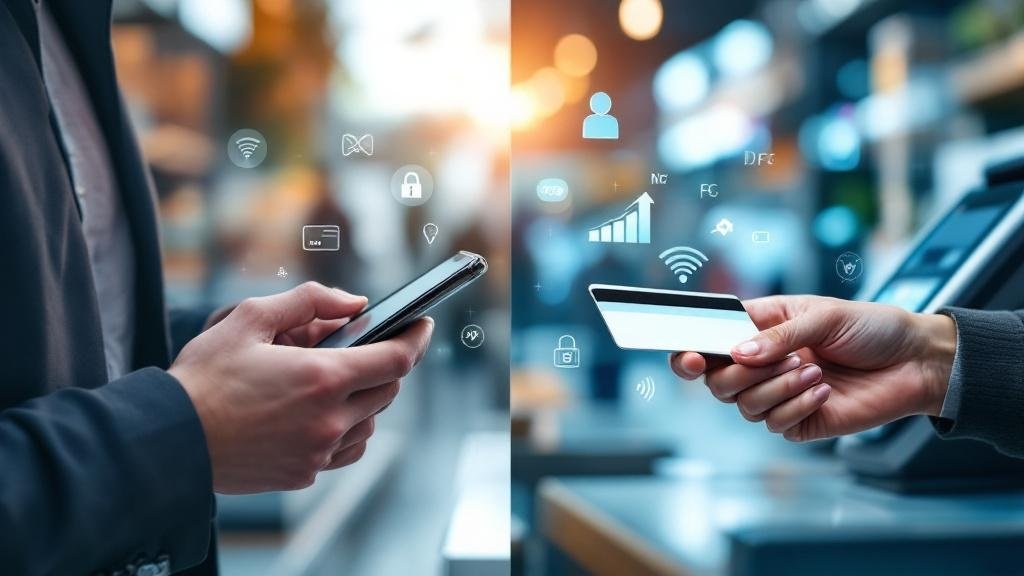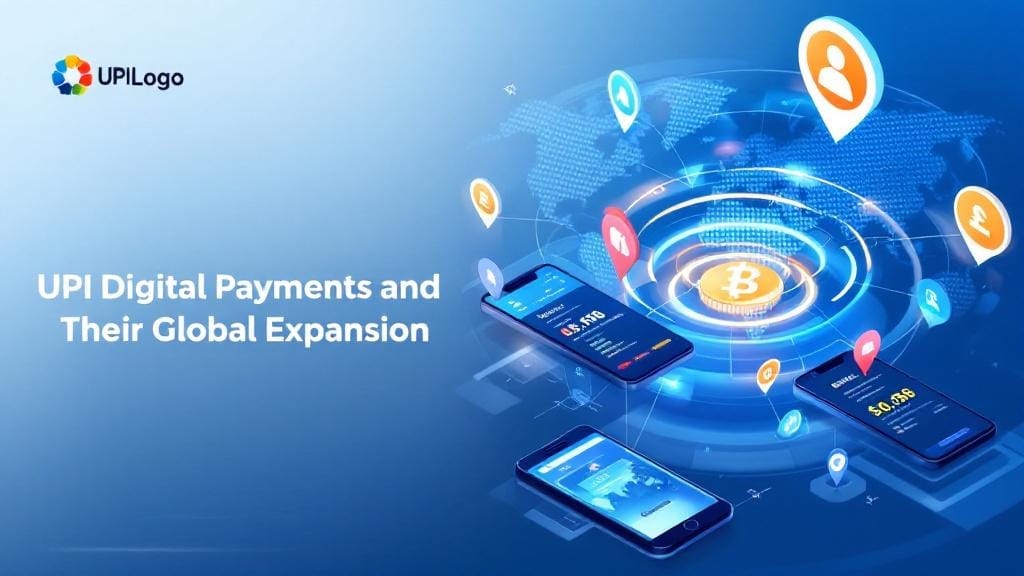When it comes to paying for your coffee, ordering groceries online, or even booking a flight, you’ve likely used either a digital wallet or a credit card—or maybe both. But which one truly fits your financial lifestyle? In this guide, we’ll break down the difference between digital wallet and credit card, the pros and cons of each, and help you decide what’s better for secure, fast, and rewarding payments.
Whether you’re considering switching to mobile payment apps or wondering if you should stick with your physical credit card, this comprehensive comparison will clear things up.
🔍 What Is a Digital Wallet?
A digital wallet, also known as an e-wallet, is a software-based system that stores your payment information securely and allows you to make contactless payments using your smartphone, smartwatch, or computer.
Popular examples include:
-
Apple Pay
-
Google Pay
-
Samsung Pay
-
Paytm / PhonePe (India)
-
PayPal
These platforms use NFC (Near Field Communication) or QR codes to enable transactions, often just by tapping your phone at checkout—a feature commonly referred to as tap to pay technology.
💳 What Is a Credit Card?
A credit card is a physical or digital card issued by a bank or financial institution that allows you to borrow money up to a limit and pay it back later, usually with interest if not paid in full by the due date.
Credit cards offer benefits such as:
-
Reward points or cashback
-
Credit card fraud protection
-
Credit-building potential
-
Widespread acceptance (online and offline)
🆚 Digital Wallet vs Credit Card: Key Differences
Let’s break down the difference between digital wallet and credit card across key factors:
| Feature | Digital Wallet | Credit Card |
|---|---|---|
| Form | Mobile app or software | Physical or digital plastic card |
| Payment Source | Linked bank account, debit, or credit card | Borrowed money from issuer |
| Security | Biometric & tokenized | EMV chip, PIN, or signature |
| Acceptance | Limited in some places | Accepted almost everywhere |
| Usage | App-based, cardless, contactless | Swipe, insert, or tap |
| Transaction Fees | Usually free | May incur interest/late fees |
| Rewards | Varies (depending on linked card) | Loyalty points, cashback, miles |
✅ Pros and Cons of Digital Wallet vs Credit Card
🔷 Pros of Digital Wallet
-
Convenience: No need to carry cards or cash
-
Speed: Quick tap-to-pay transactions
-
Enhanced Security: Uses tokenization, biometric verification, and encryption
-
Budget Control: Easier to limit spending if linked to a debit card
🔻 Cons of Digital Wallet
-
Limited Acceptance: Not all merchants accept digital wallets
-
Dependent on Devices: Battery, phone loss, or app glitches can prevent access
-
Internet Required: Most need an internet or data connection
🔷 Pros of Credit Cards
-
Universally Accepted: From local shops to international websites
-
Rewards & Perks: Cashback, airline miles, lounge access
-
Builds Credit: Helps improve your credit score with responsible use
-
**Fraud Protection: Zero-liability policies on unauthorized transactions
🔻 Cons of Credit Cards
-
High Interest: Charges apply if balance isn’t paid in full
-
Debt Risk: Overspending can lead to long-term debt
-
Annual Fees: Some cards charge yearly maintenance
🛡️ Which Is Safer: Digital Wallet or Credit Card?
When it comes to digital wallet vs credit card security, both offer strong protections—but in different ways.
✅ Digital Wallet Security Features:
-
Tokenization: Your card number is never shared with the merchant
-
Biometric Lock: Face ID or fingerprint for transactions
-
Two-Factor Authentication: Adds an extra layer of safety
✅ Credit Card Security Features:
-
EMV Chips: Protects against data skimming
-
Fraud Alerts: Banks notify you of suspicious activity
-
Dispute Resolution: You can report and reverse fraudulent charges
Verdict: Digital wallets are generally more secure for contactless payments, but credit cards offer better recovery options if fraud occurs.
🤔 Is Digital Wallet Better Than Credit Card?
It depends on your needs. If you value speed, convenience, and cutting-edge tech, a digital wallet is great. But if you’re focused on building credit, earning rewards, and having a backup option while traveling, a credit card might be more suitable.
Some users prefer to link their credit cards to their digital wallets—getting the best of both worlds: card rewards + wallet convenience.
🪙 Benefits of Digital Wallet Over Credit Card
-
Faster checkout experience
-
Reduced physical contact (great for hygiene-conscious users)
-
Supports cardless payment systems
-
Can be used with virtual cards, reducing fraud risk
-
Helps limit overspending if linked to prepaid or debit cards
💡 Real-Life Example: Urban Shopper vs Frequent Traveler
-
Urban Shopper (e.g., in Mumbai or NYC): Uses Paytm or Google Pay for metro rides, coffee, and grocery payments via phone. Prioritizes speed and mobile convenience.
-
Frequent Traveler: Uses credit card for lounge access, hotel bookings, car rentals, and earns airline miles for future trips.
Tip: Urban shoppers may benefit from digital wallets. Frequent travelers should stick to or combine both.
🧾 Digital Wallet vs Debit Card vs Credit Card
Still confused between digital wallet vs debit card vs credit card?
Here’s a simplified snapshot:
| Feature | Digital Wallet | Debit Card | Credit Card |
|---|---|---|---|
| Funds Source | Linked to bank/card | Direct from bank | Credit line |
| Overdraft Risk | Low | High (if enabled) | High |
| Rewards | Limited (depends on link) | Rare | Common |
| Credit Building | No | No | Yes |
| Risk if Stolen | Minimal | Moderate | Low (fraud protected) |
💳 Contactless Payment vs Credit Card: Aren’t They the Same?
Not quite.
-
Contactless payment refers to the method—using NFC, QR, or RFID tech to pay without inserting/swiping a card.
-
A credit card can offer contactless capability (tap to pay), but so can a digital wallet.
In short, contactless is the “how”, while credit card is the “what”.
📲 How to Choose Between Digital Wallet and Credit Card?
Ask yourself:
-
Do I value speed and convenience? → Digital Wallet
-
Do I want rewards and to build credit? → Credit Card
-
Do I want both? → Link your credit card to your digital wallet
❓ FAQs – Answering Your Common Questions
1. Which is safer: digital wallet or credit card?
Both are secure, but digital wallets use tokenization and biometrics, offering enhanced protection against physical theft and fraud.
2. Can I use a digital wallet without a credit card?
Yes. You can link it to your debit card, bank account, or even use prepaid balances on apps like Paytm or PayPal.
3. Are digital wallets accepted everywhere?
Not yet. While major cities and modern merchants accept them, some rural shops or older POS systems may only accept physical cards.
4. What are examples of secure payment methods using a digital wallet?
-
NFC Payments (Google Pay, Apple Pay)
-
QR Code Scanning (Paytm, PhonePe)
-
Virtual Card Payments (Revolut, PayPal Virtual Cards)
5. Does using a digital wallet affect my credit score?
Not directly. However, if your wallet is linked to a credit card, your card usage and payment behavior will influence your score.
6. Which offers more rewards: digital wallet or credit card?
Usually, credit cards provide more structured rewards programs. But when combined with a digital wallet, you can enjoy the same rewards with added convenience.
7. What are cardless payment systems?
These systems allow you to pay without using a physical card, typically via digital wallets, QR codes, or biometric-linked apps.
✅ Conclusion: So, Which Should You Choose?
Choosing between a digital wallet vs credit card isn’t about one being better than the other—it’s about what works best for your lifestyle.
-
Want fast, secure, modern payments? → Go for a digital wallet
-
Want rewards, credit-building, and universal acceptance? → Stick with a credit card
-
Want the best of both? → Link your credit card to your e-wallet
In 2025, the smart move isn’t choosing one over the other—it’s knowing how to use both tools effectively.








Comments (0)